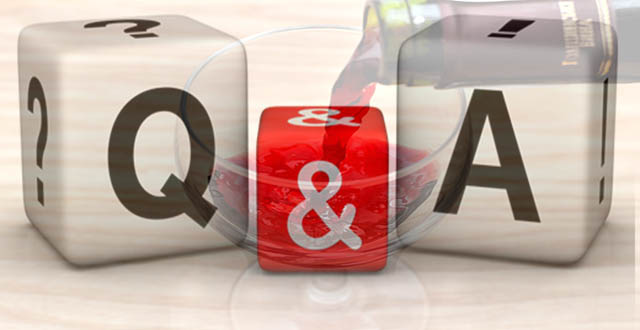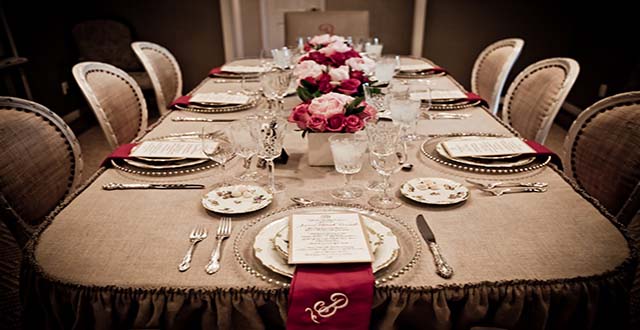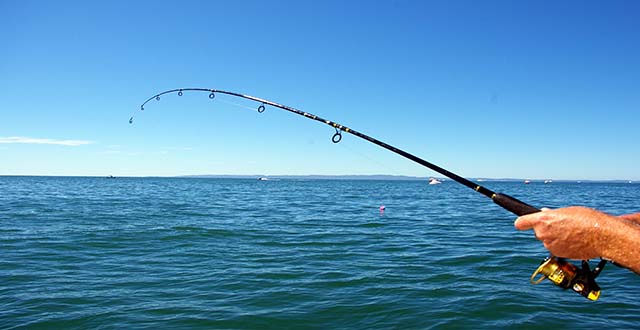Archive for year: 2014
Seven question and answer about wine in Islam
1-Question: If wine is served at a table, it is harãm for a Muslim to sit at that table. What is meant by “table”? Does this apply to the entire group [that has gone to the restaurant and some are being served alcohol] even if the tables are more than one? Or does it only apply to one table [and not the group], in the sense that if there are two separate tables, it would be permissible to sit [at the table on which alcohol is not being served, even if they are part of the same company]?
Answer: The criterion is one table. However, one should know that the prohibition of sitting at a table on which wine or intoxicant drinks are being served is based on precaution; of course, eating and drinking at that table is harãm based on obligatory precaution
2-Question: A Muslim enters a café and sits down at a table to drink tea, then a stranger comes at the same table to drink wine. Is it obligatory upon the Muslim to stop drinking tea and leave?Answer: Yes, as mentioned earlier, it is obligatory to move away from that table.
3- Question: Is it permissible to drink beer that says “alcohol free” on it?Answer: It is not permissible to drink, if “beer” means the drink made from barley that causes mild drunkenness. But if it means a drink made from barley that does not cause mild drunkenness, there is no problem in it.
4-Question: Alcohol is used in the production of many drugs and medications: Is it permissible to take them? Are they considered pure (tãhir)?Answer: They are pure; and since the alcohol used in them is so minute that it dissolves in them, it is therefore permissible to take them also.
5-Question: There is this vinegar that is made from wine, in the sense that it was wine and then, through a manufacturing process, changed into vinegar. Therefore, the label on the bottle reads: “wine vinegar” as opposed to the vinegar made from barley or other items. One of the signs [of differentiating between “wine vinegar” and the wine itself is that] the bottles of this vinegar are displayed in the area of vinegar, and it has never happened that these bottles are placed on the shelves of wines. Moreover, there is no difference between such vinegar and the vinegar made from dates for example. So, can this wine which has turned into vinegar be considered vinegar under the rule of change (istihalah)?
Answer: If the name “vinegar” can be applied in the view of common people upon that product, as has been assumed in the question, the same rule governing vinegar would apply to it. [That is, it is pure as well as permissible.]
6-Question:is it permissible for a Muslim to go to places where wine is being served with the food?
It is permissible, provided that it does not lead to promotion of those restaurants. However, he cannot eat from the table on which wine is being consumed and should not, based on obligatory precaution, sit at that table. There is no problem though, in sitting at a table near the table on which wine is being consumed.
7-Question:is there any difference between solid and liquid form?
It is forbidden to drink wine, beer, and everything that causes intoxication or drunkenness in solid or liquid form. Almighty Allãh says in the Qur’ãn: “O you who believe! Intoxicants and games of chance and (sacrificing to) stones set up and (dividing by) arrows are only an uncleanness, the Shatan’s work; shun it therefore that you may be successful.” (5:90-91)
Seven important point about wine in ISLAM

1-It is forbidden to drink wine, beer, and everything that causes intoxication or drunkenness in solid or liquid form.
2-Almighty Allãh says in the Qur’ãn: “O you who believe! Intoxicants and games of chance and (sacrificing to) stones set up and (dividing by) arrows are only an uncleanness, the Shatan’s work; shun it therefore that you may be successful.” (5:90-91)
3-Our noble Prophet Muhammad (s.a.w.) said,
“One who drinks intoxicants after Allãh has made them harãm by my statement is not worthy of marriage [to your daughter] if he proposes to her, or of intercession when he asks for a good word, or of any credibility when he speaks, or of being entrusted with anything.”(Al-Kulayni, vol. 6, p. 396.)
4-Our noble Prophet Muhammad (s.a.w.) said,“Allãh has accursed alcohol, its growers, those who squeeze it [from the grapes], its drinkers, its servers, its buyers, its sellers, those who live on its income, its transporter, and the one to whom it is being transported. ” ( Man La Yahdhurhu ‘l-Faqih, vol. 4, p. 4)
5-It is harãm to eat at the table on which alcohol or any other intoxicants are being consumed. Based on obligatory precaution, it is harãm to even sit at such a table.
6-It is permissible for a Muslim to go to places where wine is being served with the food, provided that it does not lead to promotion of those restaurants.However, he cannot eat from the table on which wine is being consumed and should not, based on obligatory precaution, sit at that table. There is no problem though, in sitting at a table near the table on which wine is being consumed.
7-It is not permissible to drink, if “beer” means the drink made from barley that causes mild drunkenness. But if it means a drink made from barley that does not cause mild drunkenness, there is no problem in it.
Seven etiquettes to be observed at the dining table
There is certain etiquette to be observed at the dining table.
1-Starting with the name of Allãh and thanking Allãh after the food
2-Tasting the salt at the beginning and the end of the dinner.
3-Eating with the right hand;
4-Making small morsels,not eating after satisfying the appetite and not over eating
5-Sitting longer at the table;
6-Chewing the food well;
7-Not looking at the faces of others while eating
Seven conditions for fish to become permissible for a Muslim
In order for fish to become permissible for a Muslim, it must have the following conditions:
1-The Muslim should be certain or satisfied that the fish has come out of the water alive and The fish must have scales on it. [That is, it should not be a skin fish]
2-The Muslim should be certain or satisfied that it died while it was already in the fishing net.
3-It is not necessary for the fisherman to be a Muslim or to utter the name of Allãh for the fish to become halãl. So, if a non-Muslim catches a fish and brings it alive from the water or it dies after getting caught in his fishing net or fishing line, and it has scales on it, it is permissible to eat.
4-A Muslim can ascertain the first condition by examining the fish if it is being displayed or by observing its name [which can tell you whether it is a skin fish or a scale fish] as long as you can trust the authenticity of the label.
5-It is permissible to eat shrimps, if they are brought out of the water alive. It is forbidden to eat frogs, lobsters, turtles, every amphibious animal, snails, and crayfish.
6-The law concerning eggs of fish follows the fish itself: the eggs of a halãl fish are permissible to eat and those of a harãm one are forbidden.
(Some experts of fisheries say that scale less fish mostly feed upon the waste of the sea and are in a way purifier of the filth, the squalor and the garbage of the sea.)
7-Is it not permissible to eat from marine animals anything except fish that has scale; shrimp is considered from that category [of permissible sea animals]. But other than fish, like lobster, and similarly the fish that does not have scale is forbidden. Allãh knows the best.
source:byislam.com
retrivd by:A Code of Practice for Muslims in the West









